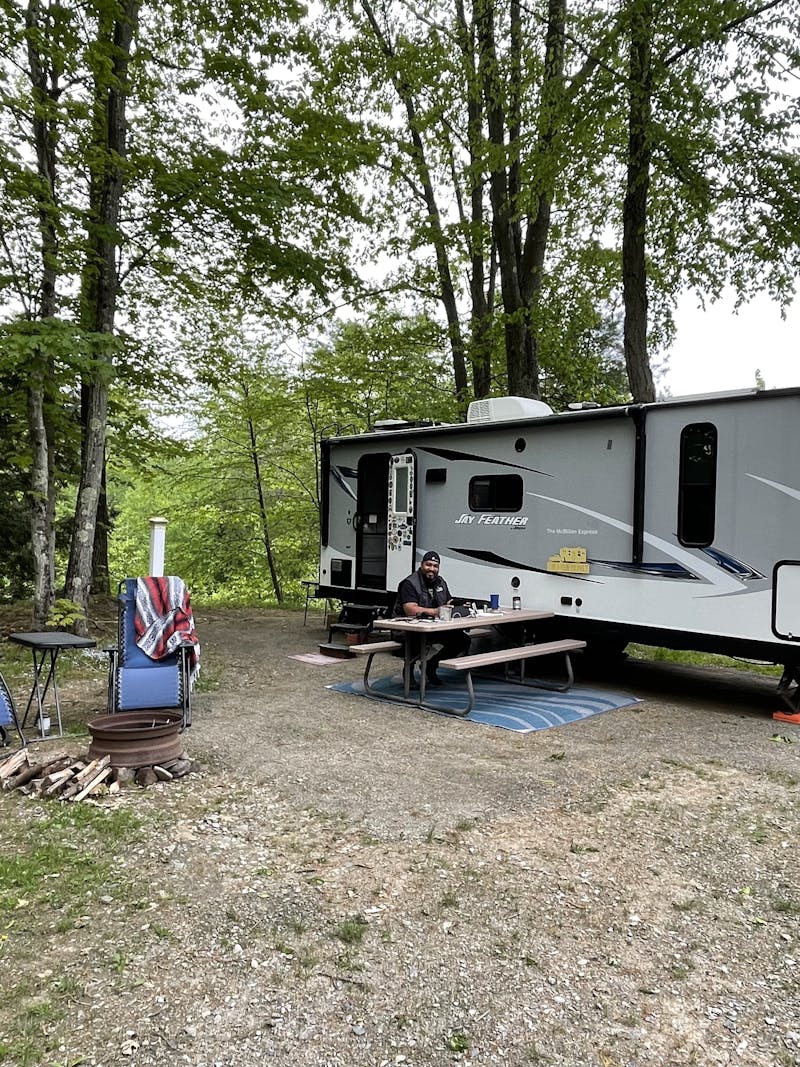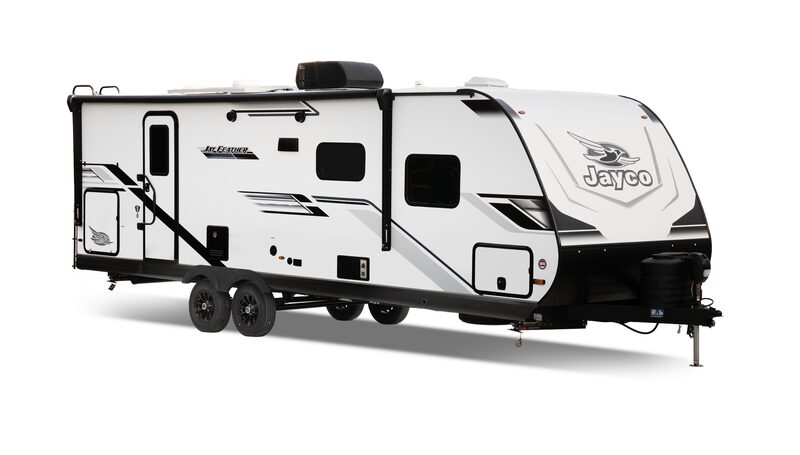What Are Some Examples Of Workamp Jobs?
As we mentioned, most workamp opportunities are short-term and typically last about six weeks or less. Some campgrounds and RV parks do offer more permanent working situations but these are less common. Some popular short-term opportunities include gate guarding, warehouse work, seasonal rentals (boats, fishing gear, skis, etc.), and camp hosting. Camp hosting is one of the most prevalent workamp jobs but often requires a longer commitment depending on the campground’s operating season. For example, parks and campgrounds in Florida can stay open all year, while places in Maine may only be open from Memorial Day through Labor Day.
Here are some examples of workamp jobs and what they offer:
Camp Hosting
Camp hosting, or being a campground host, means living and working at a campground and doing a variety of different things. Camp host responsibilities can include maintenance work around the property, clerical or front desk operations, checking guests in and guiding them to their sites, planning activities, acting as a lifeguard or security guard, and general management. Most camp host positions are seasonal but may become permanent depending on the location and if the campground is open year-round.
Gate Guarding
Another popular workamp option is being a gate guard at a large facility, factory or oil field. This means monitoring everyone who passes in and out of the gate and ensuring they are allowed to enter and at what times. In our experience, being a gate guard is typically a six week commitment and is paid as a contractor rather than an employee. Average daily rates can range from $150 to $175, but two people are required to work around the clock for seven days straight. Some companies pay more depending on how remote the location is and how busy the gate gets. While working at a gate guard, you won’t have to pay to stay on-site in your RV. And while you likely won’t have full hook-ups, most companies will provide you with a generator, fuel, propane, a water tank, and a honey pot to empty your tanks.
Sugar Beet Harvest
A very popular job among RVers is working the Sugar Beet Harvest in Montana, Minnesota and North Dakota. This harvest happens every year and typically lasts between two weeks and one month, depending on the weather. Some RVers can make $2,500 in two weeks, including overtime. On top of wages, workers also get a free campsite. However, the days can be long and the work can be tiresome. Harvesting shifts can last multiple hours and require significant time out in the fields doing manual work. If you can’t make it to the Sugar Beet Harvest, there are plenty of similar, seasonal farming jobs, including fruit picking and livestock work. Websites like Picking Jobs are a great resource to find other harvest season opportunities.
Other Workamp Jobs
Have you ever noticed that a firework stand, pumpkin patch or Christmas tree lot can seemingly show up overnight? The folks that set up and help run these seasonal stands are often workampers that stay on the property in an RV. Jobs can include set up and tear down, security, payment and sales, and general assistance (like placing the Christmas tree on top of your car). These jobs typically last between one and four weeks and offer a set amount of pay. Some amusement parks even have seasonal workamping opportunities!









